The 18th China Ecology Congress was successfully held
Time:2019-12-02Clickes:280
From November 28 to December 1, the 18th China Ecology Congress was successfully held in Kunming City, Yunnan. It was sponsored by the Ecological Society of China (ESC) and undertaken by Yunnan University. More than 3,200 experts, scholars and graduate students from all over China, the United States, Canada and South Korea attended the Congress.
This Congress coincided with the 40th anniversary of the founding of the Ecological Society of China (ESC). The opening ceremony was presided over by Wu Wenliang, Vice President of ESC. The participants watched the Documentary Film of ESC over the Past 40 Years of Endeavor. Ouyang Zhiyun, President of ESC, reviewed the main work and landmark achievements of ESC over the past 40 years. An Lizhe, Vice President of ESC, read out a congratulatory letter from the China Association for Science and Technology (CAST). Professor Eun-Shik Kim, President of the INTECOL International Association for Ecology, delivered a speech and hoped to carry out more extensive and in-depth international exchanges and cooperation with ESC. Academician Fang Jingyun, President of Yunnan University, reviewed Yunnan University's scientific research achievements in the field of ecology and expressed the warm welcome on behalf of the undertaking institution. The Ma Shijun Achievement Award in Ecological Science and the Outstanding Contribution Award of ESC were also presented at the opening ceremony. People attending the opening ceremony included Kang Le, Yu Guirui and Liu Congqiang, Academicians of the Chinese Academy of Sciences; Spencer Barrett, FRSC and Professor at the University of Toronto; Researcher Lv Yonglong, Academician of TWAS, Foreign Academician of the Academia Europaea, Vice President of ESC; Researcher Liu Shirong, Chairman of the Board of Supervisors of ESC and President of the Chinese Academy of Forestry (CAF); Researcher Wang Kelin, Vice President of ESC; Researcher Chen Liding; Researcher Zhu Jiaojun; Researcher Re Hai; etc.
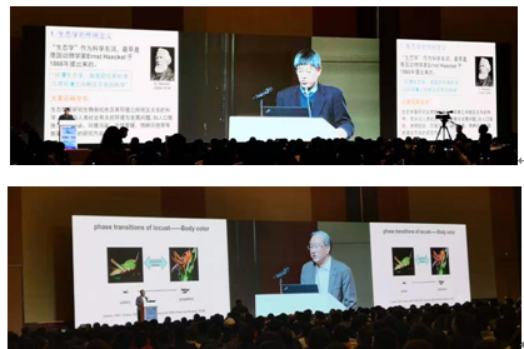
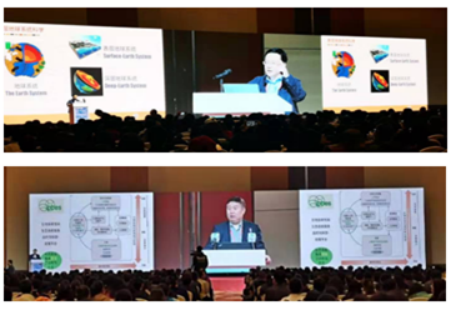
Photo of activity (1)
The theme of the Congress was "Inheritance and Innovation: A New Mission of Ecological Science". Vice President Wang Kelin, Vice President Lv Yonglong, and Li Qingjun, Dean of the School of Ecology and Environmental Science of Yunnan University presided over the specially invited plenary presentations of the Congress. The speakers (including Fang Jingyun, Academician of Yunnan University; Kang Le, Academician of the Institute of Zoology (IOZ), CAS; Liu Congqiang, Academician of the Institute of Geochemistry, Chinese Academy of Sciences (IGCAS); Fu Bojie, Academician of the Research Center for Eco-Environmental Sciences, CAS; Spencer Barrett, Professor at the University of Toronto and FRSC; Liu Jianguo, Professor at the Michigan State University (MSU) and Academician of the American Academy of Arts and Sciences; Re Hai, Researcher of the South China Botanical Garden, CAS; Niu Shuli, Researcher of the Institute Of Geographic Sciences And Natural Resources Research, CAS; Zhang Quanguo, Professor at Beijing Normal University; and Dong Guanghui, Professor at Lanzhou University) made wonderful plenary presentations on the following aspect: the discipline system construction of ecology; animal body color formation and group defense mechanism; biogeochemistry and ecology; ecosystem services; global ecology; invasion ecology; tropical coral island vegetation ecosystem restoration; research on ecology under the background of big data; tachytelic evolution; human ecology and Environmental Studies; etc.
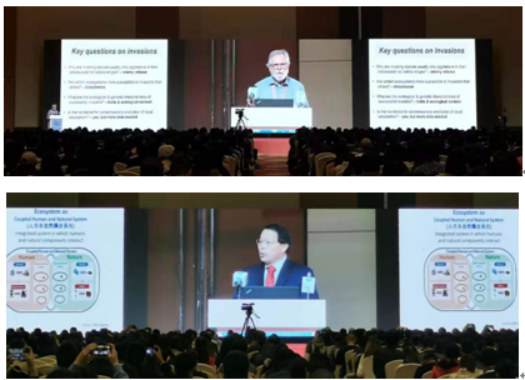
Photo of activity (2)
The Congress organized 46 thematic parallel sessions from macro to micro, from theory to application, from fundamental research to national needs, etc. A total of 606 oral presentations and 193 academic posters were arranged. This Congress also established the "National Forum for Graduate Students Majored in Ecology", 444 excellent graduate students majored in ecology gave oral presentations and received warm responses. During the Congress, the ecological science forum and the exhibition of ecological books exhibition were also held. The presentations of the Congress and the wonderful speeches and exchanges in each thematic parallel session left a deep impression on all participants.
The closing ceremony of the Congress was presided over by Secretary-General Zhong Linsheng. In order to award young graduate students attending the Congress, the award ceremony of "Excellent Presentation Award for Graduate Students" and the "Excellent Poster Award" was held. The Congress awarded 73 excellent presentation awards for graduate students and 36 excellent poster awards. The Congress stressed that ESC should take this Congress as an opportunity, stay true to its original intention, keep its mission in mind, and make new and greater contributions to building a powerful nation of science and technology in the world, promoting socialist ecological civilization and realizing the Chinese Dream of the great rejuvenation of the Chinese nation under the leadership of the higher authorities.
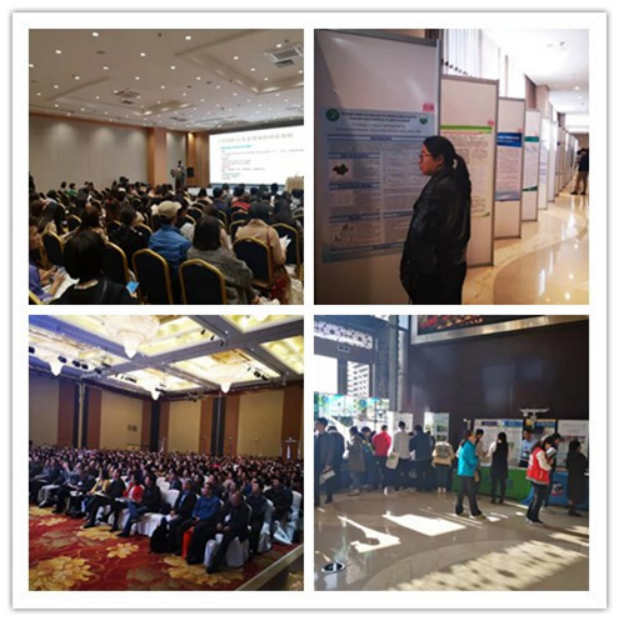
Photo of activity (3)
This Congress mainly showed the following four features: 1) Unprecedented scale of the Congress. The Congress had more than 3,000 participants and 327 participating institutions, including 153 institutions of higher learning, 140 research institutes, 3 related publishing institutions and 21 ecology and environment-related enterprises. The number of registrations, the number of abstracts and the number of oral presentations at the Congress are at a new high. 2) Rich academic contents. The Congress had a great lineup of specially invited speakers. 10 well-known domestic and foreign academicians and experts were invited to report the important new progresses at home and abroad. The presentations at thematic parallel sessions reflected the new achievements in different subfields and research directions. In particular, many studies focused on national, regional or local ecological practices and centered on the national needs of ecological civilization construction. 3) A galaxy of young talents. In addition to the postgraduate forum, young and middle-aged scholars were dominant at each parallel session, and all seats were occupied at the thematic parallel sessions. The outstanding postgraduate papers and research posters selected by this Congress covered a wide range of topics, and there was no lack of research of great potential. 4) Attached importance to international exchanges. The Congress invited two overseas academicians to make academic presentations, so as to enable the participants to know about the international academic frontier in the first time. At the same time, the president of the INTECOL International Association for Ecology was invited to attend the Congress, thus promoting ESC to exchange its academic achievements and operations with international counterparts.
The Congress was innovative in terms of conference logistics and services for delegates: The site was a professional exhibition venue, which brought more superior experiences to the participants. The Congress took full advantage of WeChat, questionnaire platform and other electronic media means to make the information-oriented feature more outstanding. For the first time, e-invoice and e-payment were launched, which significantly improved the service quality for the delegates and received positive feedback.
This Congress set up an adequate platform to display various achievements in the field of ecology in China. It was a high-level academic meeting in the field of ecology in China. It is believed that it will play an increasingly prominent role in promoting the construction of ecology discipline and the communication and cooperation between scientific and technological practitioners and young graduate students in related fields.
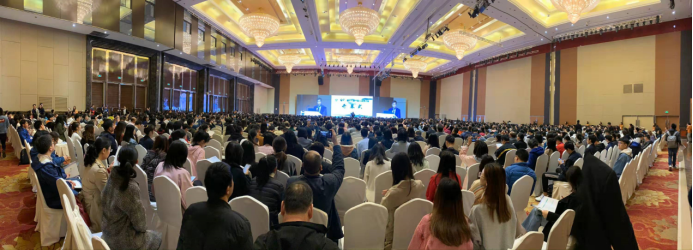
Photo of activity (4)


